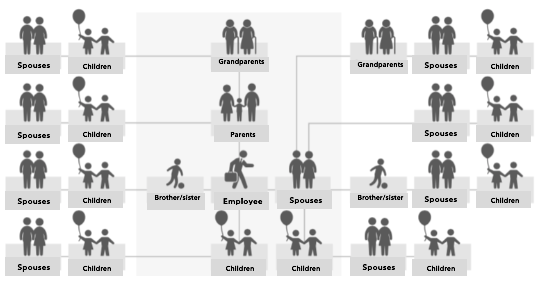by Stéfanie Rochford, CRHA
In the spring of 2018, parliamentarians updated the Labour Standards Act through Bill 176 to mainly facilitate the work-life balance.
The changes are major for employers and all must comply since June 12, 2018 or January 1, 2019, as the case may be.
WORK-LIFE CONCILIATION
1 Annual holidays:
• Added a 3rd week of vacation after 3 years of service.
2 Holidays:
• If the civic holiday falls on a day that is not normally worked, the employer has the choice between compensation and leave.
3 Caregiver and parent:
• The notion of “parent” used to determine the right to absences for family or parental reasons is now broadened.
ABSENCES FOR FAMILY REASONS| New provision| Parent concept

4 Sickness and family obligations:
• The employee now has the possibility of receiving two (2) days of paid vacation, in the same year, for illness, accident, domestic violence or sexual violence or to take care of a parent or a person with whom he acts as a caregiver.
• The employee may be absent up to 16 weeks over a 12-month period to take care of a parent or a person for whom he is acting as a caregiver, and up to 36 weeks if this person is a minor child.
• A new provision indicates that an employee may be absent up to 27 weeks over a 12-month period when his presence is required from a parent, other than his minor child, or from a person for whom he acts as caregiver, because of a serious, life-threatening illness, attested by a medical certificate and up to 104 weeks in the case of a minor child.
5 Period of absence during a death or disappearance:
• The employee may be absent from work without pay for up to 104 weeks, in the event of the disappearance or death of his minor child or the death by suicide of his spouse, adult child, or father or mother.
• The employee is entitled to five (5) days off, including two (2) paid days upon the death of a relative.
6 Spousal violence and sexual violence:
• A new provision in the Act provides that an employee who is the victim of domestic violence or sexual violence may be absent from work for up to 26 weeks over a 12-month period.
7 Birth and adoption:
• There is no longer any continuous service requirement for the employee to benefit from 2 paid days over the 5 days of absence to which he is entitled on the occasion of the birth or adoption of his child or when an interruption of pregnancy occurs from the 20th week.
8 Work schedule:
— The employee may refuse to work;
• More than 2 hours beyond normal daily hours of work.
• More than 14 hours of work per 24-hour period.
• When the employee has not been informed 5 days in advance, except when the nature of his duties requires him to remain on standby.
9 Staggered hours of work:
• The employer and the employee may agree to staggered working hours on a non-weekly basis (for example, monthly) without the authorization of the CNESST.
DISPARITIES OF TREATMENT IN WORKING CONDITIONS
1 Pension plan or benefits:
• Disparities based only on a hiring date for pension plans or other benefits that affect employees who perform the same duties in the same establishment are prohibited. However, those that existed before the coming into force of the Act, June 12, 2018, remain valid.
2 Wage rate and employment status:
• An employer may not pay a lower wage rate or reduce the length or payment of annual leave compared to its other employees performing the same tasks in the same establishment only because of employment status.
HARASSMENT
1 Concept of sexual harassment:
• The Act specifies that the behaviors manifested by words, actions or gestures of a sexual nature are part vexatious lines included in the definition of psychological harassment.
2 Complaint for harassment:
• The employee now has 2 years after the last psychological harassment event to file a complaint with the CNESST.
3 Harassment Prevention Policy:
• The employer is now required to adopt a policy of prevention of psychological harassment and complaint handling. This policy must include a section on sexual harassment.
EXCLUSIONS FROM THE LABOUR STANDARDS ACT concern the student athlete, as well as construction and senior employees.
NEW PROVISIONS are pending the adoption of a regulation with respect to temporary foreign worker and employment agency and recruitment agency obligations.
→ L’ORDRE DES CONSEILLERS EN RESSOURCES HUMAINES AGRÉES has created a training program (for all) and certification (for members) to manage harassment at work.
The changes are detailed here on the portal of l’Ordre des conseillers en ressources humaines agréés in the « Guide pratique des changements à la Loi sur les normes du travail | Projet de loi no 176 ».

